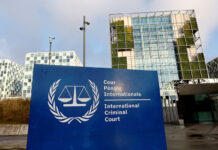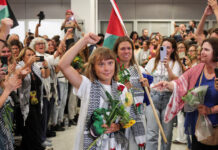An anti-apartheid song, once a rallying cry for Black South Africans resisting oppression, has again sparked controversy.
Elon Musk and others have condemned it as promoting violence against whites, bringing it back into the national spotlight and prompting a ruling from South Africa’s highest court on Thursday.
The song has long been contentious due to lyrics such as “kill the Boer” and “shoot the Boer”—with “Boer” referring to white farmers. It is primarily sung in modern South Africa by leaders of the far-left opposition party, the Economic Freedom Fighters (EFF), at political gatherings. The party performed it again last Friday, prompting Musk, who was born in South Africa, to post on X (formerly Twitter), claiming the song “actively promotes white genocide.”
The EFF maintains that the song commemorates the anti-apartheid struggle and should not be taken literally. Courts have debated whether it constitutes hate speech or incites violence. While a ruling over a decade ago declared it hate speech, that decision was overturned in 2022, with a judge concluding there was no evidence it led to violence.
On Thursday, South Africa’s Constitutional Court dismissed an appeal by a group representing the country’s white minority, which sought to have the song banned. It was the second failed attempt to appeal the 2022 ruling.
Musk, an influential adviser to former U.S. President Donald Trump, grew up in South Africa but left before apartheid ended in 1994. He has repeatedly criticized the current Black-led government, citing the song as evidence of anti-white sentiment. Last month, Trump issued an executive order cutting all U.S. funding to South Africa, accusing its government of fostering “hateful rhetoric” and enabling “disproportionate violence against racially disfavored landowners.”
South African officials rejected these claims, calling them misinformation. They argue that there is no persecution of white citizens, who make up about 7% of the population but remain significantly wealthier than the Black majority, more than 30 years after apartheid ended.
REF: AP NEWS



















